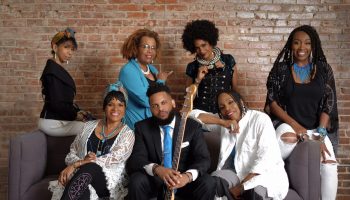
Julia Weber
Staff Writer
For Deborah Rutter, nonprofit executive and former president of the Kennedy Center, art is for life’s sake.
“I actually believe that we all need art in our life all the time,” she said.
Rutter will deliver the morning lecture at 10:45 a.m. today in the Amphitheater, closing out the Chautauqua Lecture Series’ Week Three exploration of “Art in Action: Building Community Through the Arts” with a lecture that brings her experience in the nonprofit sector of the arts to the Amp stage.
“I’m just absolutely thrilled to be in a place that is so supportive and nurturing of curiosity, lifelong learning and the opportunities and potential for who we are as human beings,” Rutter said.
The arts administrator began her career at the Los Angeles Philharmonic and went on to work at institutions such as the Chicago Symphony Orchestra and the Seattle Symphony Orchestra. Most recently, she served as the first female president of the Kennedy Center from 2014 to 2025.
Rutter was introduced to music at a very young age; her parents and educators not only instilled but fostered a deep love for music, which she still holds dear. She cited this very passion — and the guidance she received along the way — as a guiding factor to the development of her relationship with the arts.
“I say often that every important decision in my life was made with music at the center of it,” she said. “As I have developed my own understanding, my relationship to artists, my work with it, I’ve really come to understand that art and the experience of art as a spectator or as a participant — even if you’re an amateur, let alone for those who are professionals — it becomes a part of a definition of how you live your life and how you see the world. Therefore, I have come to have a really deep philosophy that art is life; it is not an add-on.”
When Rutter first began working in the arts sector, she recalls distinct separation between different forms of art.
“At the time, the arts still lived in silos,” she said. “They didn’t blend and merge.”
Over the last 25 years, Rutter said she has seen artists look to one another for inspiration and collaboration more and more.
“There is the blending and the impact that the art and artists have on one another, and I think that will continue,” she said. “I loved seeing that happen, because at the Kennedy Center — that’s one of the great things that I was excited about coming to the Kennedy Center — I could pull a comedian and a jazz musician and a visual artist and throw them in a room and create something. Or, a string quartet and a video artist and a dancer. Again, what will you create?”
Despite a contentious climate and backlash toward the arts, Rutter is certain that artists’ voices will not be stifled.
“What’s happening now is definitely an effort to try and quiet the voice of the artist. It will never happen,” Rutter said. “It has happened at the Kennedy Center, and they will quiet aspects of the Kennedy Center, but they will not ever quiet the artist. The artist will always speak up and speak truth to power. Always.”




